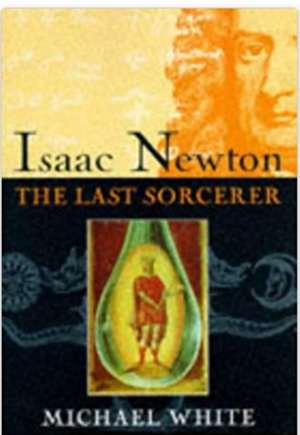Difference between revisions of "White 1997 Fourth Estate"
From Bioblast
m (Gnaiger Erich moved page White 1997 Fourth Estate, London to White 1997 Fourth Estate) |
|||
| Line 9: | Line 9: | ||
[[File:White 1997 Fourth Estate, London.png|right|300px]] | [[File:White 1997 Fourth Estate, London.png|right|300px]] | ||
=== Attraction, affinity, force === | === Attraction, affinity, force === | ||
* [[Affinity]] | * [[Affinity of reaction |Affinity]] | ||
* [[Force]] | * [[Force]] | ||
::::* Without his in-depth knowledge of alchemy (which he practised during the 1670s and '80s), he would almost certainly never have expanded the limited notion of planetary motion as he saw it in 1665/6 into the grand concepts of universal gravitation, of attraction and repulsion, and of action at a distance. - (p 93) | ::::* Without his in-depth knowledge of alchemy (which he practised during the 1670s and '80s), he would almost certainly never have expanded the limited notion of planetary motion as he saw it in 1665/6 into the grand concepts of universal gravitation, of attraction and repulsion, and of action at a distance. - (p 93) | ||
Revision as of 20:48, 27 December 2018
| White M (1997) Isaak Newton. The last sorcerer. Fourth Estate, London 402 pp. |
White M (1997) Fourth Estate, London
Abstract: Unknown to all but a few, Newton was a practicing alchemist who dabbled with the occult, a tortured, obsessive character who searched for an understanding of the universe by whatever means possible. Sympathetic yet balanced, Michael White's Isaac Newton offers a revelatory picture of Newton as a genius who stood at the point in history where magic ended and science began.
• Bioblast editor: Gnaiger E
Attraction, affinity, force
* Affinity * Force
- Without his in-depth knowledge of alchemy (which he practised during the 1670s and '80s), he would almost certainly never have expanded the limited notion of planetary motion as he saw it in 1665/6 into the grand concepts of universal gravitation, of attraction and repulsion, and of action at a distance. - (p 93)
Pressure
* Pressure
- The prevailing hypothesis of light at the time was that of Descartes. He believed that light was a 'pressure' transmitted through the transparent medium of the ether. Sight, he claimed, was due to this pressure impinging upon the optic nerve. - (p 58-59)

